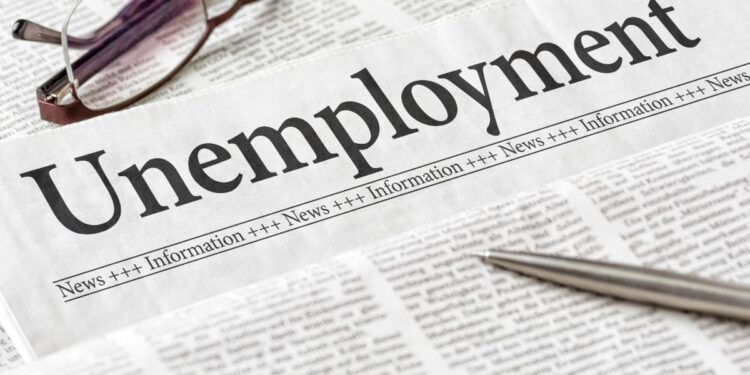When the economy goes into a recession, most economic commentators believe that the government and the central bank should take steps to counter the rise in unemployment. Some economists believe that lowering unemployment can be achieved without any cost, given that the unemployed workers are idle. According to Paul Krugman, “If you put 100,000 Americans to work right now digging ditches, it is not as if you are taking those 100,000 workers away from other good things they might be doing. You are putting them to work when they would have been doing nothing.”
But how will such a policy be funded? Who pays the unemployed for digging ditches? It seems that Krugman believes that funding can be easily generated by the central bank via money printing.
Now, funding is not about money as such but about real savings, which is the amount of consumer goods produced less the consumption of these goods by the producers of consumer goods. Real savings sustain people who are engaged in the production of goods.
When a baker trades the saved loaves of bread for potatoes, he provides the means of sustenance to the potato farmer. Equally, the potato farmer provides the means of food, his saved potatoes, to the baker. These real savings sustain producers while they create intermediate goods and consumer goods and services.
To maintain their life and well-being, individuals require consumer goods, not money as such, which is just the medium of exchange. Money helps to facilitate trade among producers—it is not real wealth itself. According to Murray Rothbard, “Money, per se, cannot be consumed and cannot be used directly as a producers’ good in the productive process. Money per se is therefore unproductive; it is dead stock and produces nothing.”
Paraphrasing Jean Baptiste Say, Ludwig von Mises wrote, “Commodities, says Say, are ultimately paid for not by money, but by other commodities. Money is merely the commonly used medium of exchange; it plays only an intermediary role. What the seller wants ultimately to receive in exchange for the commodities sold is other commodities.”
Tools and machinery or the infrastructure that producers employ has one purpose, which is to produce consumer goods. The greater the production of consumer goods, the larger the pool of real savings. Consequently, through the increase in real savings, a better infrastructure can be built and this in turn enables more economic growth.
Savers create wealth, and their savings are used to fund people specializing in the production and maintenance of the infrastructure and individuals employed in the production of final consumer goods. Contrary to Krugman, the artificial initiation of employment such as digging unneeded ditches is not cost free because those non-wealth-generating projects must be sustained.
Since government does not produce real wealth, it cannot save and therefore cannot fund wealth-creating activity. For the government to engage in such projects, it must divert real savings from wealth generators, who are the ones that save and employ real savings in the production of final consumer goods.
Production Increases Are Limited by Real Savings
For Krugman, the government policies of countering unemployment not only will be costless but will increase total demand in the economy. Consequently, this will enhance overall output by the multiple of the increase in the demand. John Maynard Keynes, who popularized this concept, wrote,
If the Treasury were to fill old bottles with banknotes, bury them at suitable depths in disused coal mines which are then filled up to the surface with town rubbish, and leave it to private enterprise on well-tried principles of laissez-faire to dig the notes up again (the right to do so being obtained, of course by tendering for leases of the note-bearing territory), there need be no more unemployment and with the help of the repercussions, the real income of the community, and its capital wealth also, would probably become a good deal greater than it actually is.
In order to accommodate the increase in his demand for goods, a baker must have the means of payment—in his case, bread. For instance, the baker secures five tomatoes by paying for them with the eight saved loaves of bread. Likewise, the shoemaker supports his demand for ten tomatoes with a saved pair of shoes while the tomato farmer supports his demand for bread and shoes with his fifteen saved tomatoes.
Whenever the supply of goods increases, it permits an increase in demand for goods. Thus, the baker’s increase in the production of bread permits him to increase his demand for other goods, so the increase in the production of goods gives rise to demand for goods.
According to David Ricardo,
No man produces but with a view to consume or sell, and he never sells but with an intention to purchase some other commodity, which may be immediately useful to him, or which may contribute to future production. By producing, then, he necessarily becomes either the consumer of his own goods, or the purchaser and consumer of the goods of some other person.
Individuals engage in production to exercise demand. An increase in capital goods or tools and machinery enables the supply of consumer goods to expand, while real savings permit the increase in tools and machinery.
Thus, the increase in production corresponds to what the pool of real savings permits, since production cannot expand without the support from real savings. This means, of course, that only wealth generators can set an expansion in real wealth into motion. Because government is not a wealth generator, it cannot create real economic growth. On the contrary, it can weaken the wealth-generation process.
According to Mises, “There is need to emphasize the truism that a government can spend or invest only what it takes away from its citizens and that its additional spending and investment curtails the citizens’ spending and investment to the full extent of its quantity.”
Conclusion
Contrary to some commentators, such as Paul Krugman, the government policies of lowering unemployment are not cost free. For Krugman, the purpose of employment is to be a means of funneling money to people so they can spend it, not to enhance the production of goods and services necessary to sustain life.
Government schemes that are aimed at artificially boosting employment result in the diversion of real savings from wealth generators toward people employed in government projects. Unfortunately, this process undermines real economic growth.














